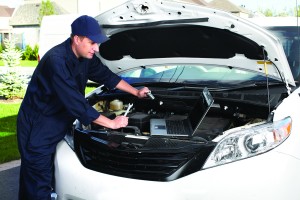 Privacy is becoming an increasingly rare commodity. From phones to computers, to credit cards and now even our vehicles, everyday devices are collecting more information than we could ever imagine. Companies have jumped on the information-collecting bandwagon to gather as much data as possible to sell more products, services or ads that are specifically relevant to our demographics and preferences.
Privacy is becoming an increasingly rare commodity. From phones to computers, to credit cards and now even our vehicles, everyday devices are collecting more information than we could ever imagine. Companies have jumped on the information-collecting bandwagon to gather as much data as possible to sell more products, services or ads that are specifically relevant to our demographics and preferences.
Many of us are learning the importance of staying safe online to protect our identity. There are simple things we can do to safeguard our online privacy, like protecting passwords on smartphones, keeping social networking activity private, using firewalls on the computer, and monitoring online banking statements. However, one area that many of us haven’t even thought about is our vehicles.
Some high-end new vehicles today, and almost all of them by 2020, will be loaded with a myriad of sensors feeding into an onboard computer that will record a number of issues. While this information can be useful to protect our safety, our cars will also be capable of tracking data about where we’re going, what speed we’re travelling at, and who we’re travelling with.
As car technology increasingly advances, this information represents a growing concern for drivers, privacy advocates and even car companies themselves. The questions become: who has access to our information and what are they planning to do with it?
Currently many manufacturers plan to collect the information about you and your car for their own needs. The Canadian Automobile Association (CAA) believes that you, the driver, should have the ability to control what information you share, and where it goes.
“Vehicles are transforming into smartphones on wheels,” says Jeff Walker, vice president of public affairs at CAA. “There’s a wealth of information that cars are going to be capable of transmitting, but when it comes to sharing it, the consumer has to remain in the driver’s seat.”
Before this technology becomes widespread, consumers, government and manufacturers need to work towards vehicle technology that will not only keep drivers physically safe on the roads, but that will also give drivers control over their privacy and personal information.


